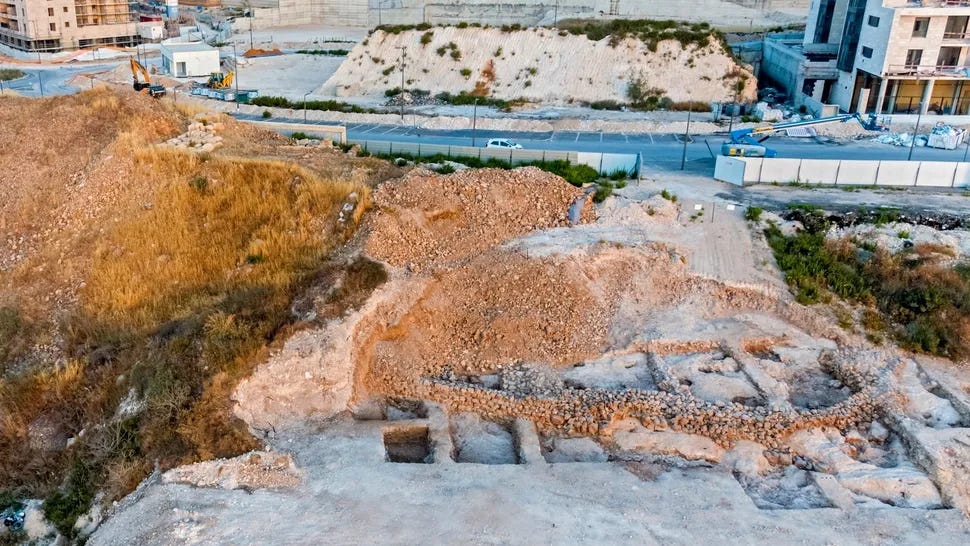Archaeologists have found evidence of ancient Assyrians' conquest of the Holy Land
Latest News
Reported by Live Science:
Archaeologists have found evidence of an Assyrian military campaign against Judaea that resulted in the siege of Jerusalem.
The campaign was launched in 701 B.C., when Sennacherib was king of Assyria and Hezekiah was king of Judaea. Sennacherib launched the campaign because he considered Hezekiah a vassal king who should obey the Assyrians, but Hezekiah refused and rebelled against him.
The Assyrians conquered much of Judaea and laid siege to Jerusalem but, for reasons that are unclear, failed to take the city. The Hebrew Bible claims that the "the angel of the Lord went out and put to death a hundred and eighty-five thousand in the Assyrian camp" (2 Kings 19:35), while Assyrian records claim that Hezekiah paid a vast amount of tribute so the Assyrians would leave Jerusalem alone.
In the Mordot Arnona neighborhood of Jerusalem, archaeologists discovered an administrative building that was used for taxation in ancient times. The building went through a number of changes during the eighth and seventh centuries B.C.
Archaeologists found that during the eighth century B.C., the building was used as a center that processed taxes to Hezekiah and contained jars with inscriptions saying the taxes were the property of the king. "What we see here is the economic generator of the Judaean kingdom," Neria Sapir, an excavation director of the site, said in a translated video released by the Israel Antiquities Authority (IAA).
Sapir explained that the jars would have gone out to the countryside, where people, possibly landlords or government officials, would have collected taxes and paid them in agricultural products, possibly olive oil. Some of the jar handles contain the names of people, possibly those who ensured the taxes were collected and paid to the king.
Read more here.



